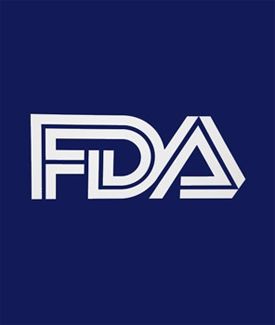FDA Approves New Frontline Drug for Chronic-Phase CML
The FDA approved bosutinib (Bosulif) for use as a treatment of patients with newly diagnosed chronic-phase Philadelphia chromosome–positive chronic myeloid leukemia.
The indication is for newly diagnosed CML patients in chronic phase

The US Food and Drug Administration (FDA) approved bosutinib (Bosulif, Pfizer) for use as a treatment of patients with newly diagnosed chronic-phase Philadelphia chromosome–positive chronic myeloid leukemia (Ph+ CML), the drug company has announced.
Bosutinib was first approved in 2012 for treating adults with accelerated and blast-phase Ph+ CML. Pfizer’s supplemental New Drug Application to expand the BCR-ABL tyrosine kinase inhibitor (TKI)’s indication to include newly diagnosed adult Ph+ CML was reviewed and approved under the FDA’s Priority Review program.
Approval was based on surrogate outcomes of the randomized multicenter, phase III BFORE trial. In this open-label study, 400 mg dosing was associated with improved rates of major molecular response at 12 months compared to imatinib (47.2% vs 36.9%) for an odds ratio [OR] of 1.55 (95% CI, 1.07–2.23; P = .02), and a 12-month complete cytogenetic response rate of 77.2% vs 66.4% for imatinib-treated patients for an OR of 1.74 (95% CI, 1.16–2.61; P = .0075). Only patients with typical Ph+ transcripts were included in the analysis. Continued approval will depend on confirmation of clinical benefit in an ongoing long-term follow-up clinical trial.
“Among patients with CML today, with the various treatment options available, it is important to recognize the unique needs of each of my CML patients and prescribe treatments that best meet those needs,” said Jorge E. Cortes, MD, of the University of Texas MD Anderson Cancer Center in Houston, and a senior author of the BFORE trial. “The efficacy and distinct tolerability profile of Bosulif make it an important and useful treatment option for newly diagnosed CML patients.”
Clinical experience with the drug thus far suggests that it is clinically effective and tolerable, noted Cortes. TKI safety profiles vary and the new option is “welcome,” he said.
VIDEO: Watch Dr. Cortes Discuss the BFORE Results
Grade ≥ 3 toxicities included increased liver enzyme values (24% vs 4% for patients in the bosutinib and imatinib study arms, respectively), thrombocytopenia (13.8% vs 5.7%), neutropenia (6.7% vs 12.1%), and diarrhea (7.8% vs < 1%).
Complete blood counts should be performed weekly during the first month of treatment and once monthly or as clinically indicated, thereafter. In rare instances, anaphylaxis and anaphylactic shock has occurred in patients treated with bosutinib, Pfizer noted. Diarrhea, abdominal pain, nausea, and vomiting can also occur, with a median time to onset of 3 days and a median duration per episode of 3 days.